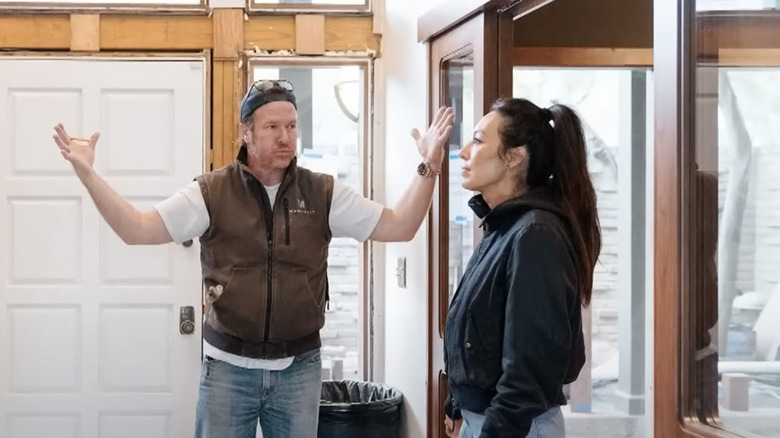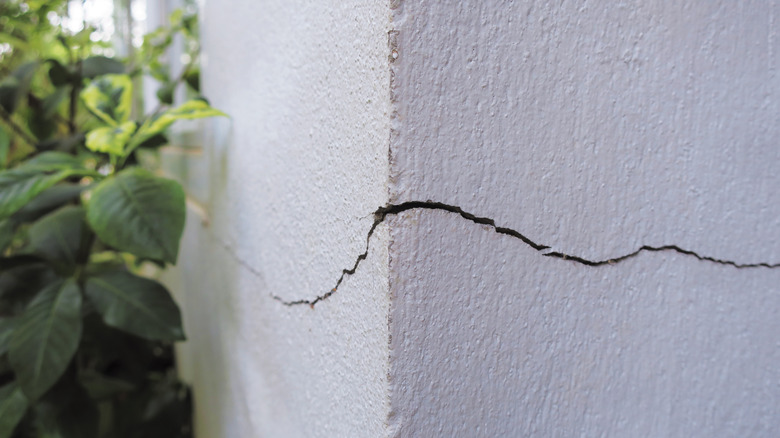The One Thing Fixer Upper's Chip Gaines Wants You To Consider Before Buying A Home
When things go wrong on a renovation project, "Fixer Upper" star Chip Gaines often breaks the tension with a funny quip or joke. "The reason why I fell in love with him was he made me laugh," his wife, Joanna Gaines, once told Today.com. From karate kicking his way through demo days to strapping on stilts when it's time to install drywall, there's not much he won't do to make his construction crews, and loyal viewers, crack a smile. But despite his cheerful nature, Chip is quick to admit that finding major structural issues during a home renovation is no laughing matter. He says foundation problems are one thing you should carefully consider before buying a home.
Even though a foundation isn't visible, like shiplap walls or farmhouse chic decor, it makes the ultimate statement in every house. Basements, crawl spaces, and concrete slabs are all examples of residential foundation types. Designed to provide equal weight distribution of the home's structure so it stays upright even during adverse weather conditions, foundations are commonly made of concrete, wood, or brick. Windows that stick, gaps around door frames, large exterior cracks, and uneven floors are signs there is a problem with a home's foundation. If you're interested in purchasing a fixer upper of your own, you need to keep a sharp eye out for these telltale issues.
Foundation problems are costly and hard to repair
"If the foundation is screwed up, that is a complicated, costly scenario that can lead to a hundred different things, and you don't want to mess with that," Chip Gaines said in an interview with Better Homes & Gardens. He went on to recommend that new DIYers avoid purchasing homes with severe foundation problems, one of his real estate "red flags."
Older homes are especially prone to foundation issues, which can wreak havoc on a house's structure. Tree roots, soil erosion, and weather cycles that freeze and thaw the ground around a home can cause its foundation to shift over time. In areas with prolonged periods of rain or flash flooding, wet soils can compact quickly, which can result in foundations sinking well beyond the normal settling that frequently occurs in the first few years after a home is built. Although most insurance policies cover foundation damage if it's the result of a fire or natural disaster, most don't cover lack of maintenance or settling issues.
Foundation repair costs vary widely depending on a number of factors. Fixing a simple concrete crack could cost less than $1,000. But a shifting foundation that requires extensive soil testing and underpinning may cost in excess of $25,000. Even if an eager seller is willing to take the cost of repair off the sales price of a property, it can be difficult to secure a government-backed mortgage for a home that requires structural repairs.

